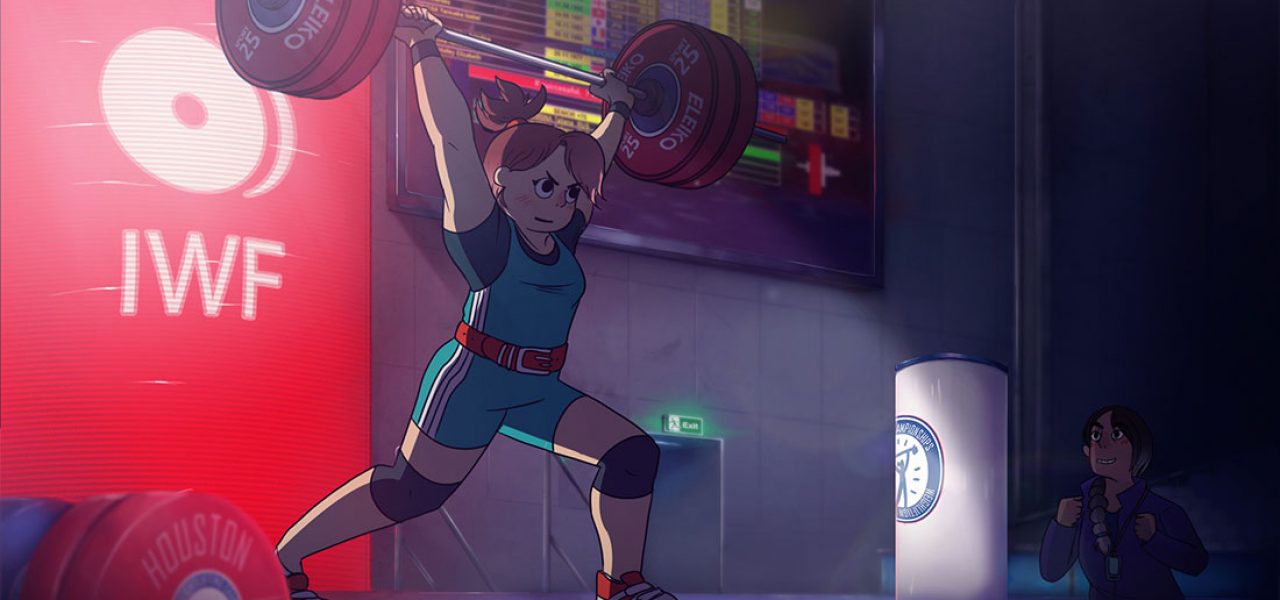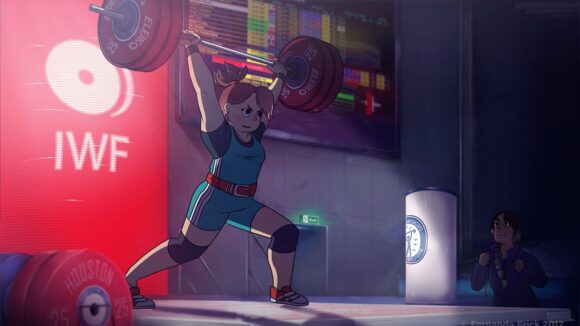

Ventana Sur Opens A Window Into The Latin American Animation Scene
Buenos Aires’s Ventana Sur – Spanish for Southern Window – has quickly evolved since it started in 2009 to become one of the most significant film markets in South America.
Partnered with Cannes Marché du Film, the Argentinian event offers an impressive selection of projects that reflect the richness and variety of the contemporary Latin American audiovisual scene. For the second time since its inception, Ventana Sur included an animation subsection, conveniently named Animation!, devoted to promoting Latin American animation projects and forging strategic alliances between commercial studios from across the region.
Latin American countries that are leading the way in developing their animation industries, such as Argentina, Chile, Mexico, and Brazil, shined at the recent edition, which concluded on December 1st, 2017. “In particular, I would like to highlight the fantastic advances in Chilean animation over the last few years,” says Animation! coordinator Silvina Cornillon. “However we also need to keep an eye on Peruvian animation, which keeps growing, and Ecuador, whose industry and professionals are also developing quickly.”
Cornillon added though that the event is meant to help all countries in the region: “I want to recognize the development of the region as a whole, thanks to an increase in the number of co-productions and inter-regional outsourcing, proving that the continent is internally learning to solve production challenges.”

The animation sidebar at the most recent edition of Ventana Sur offered a wide range of activities, including networking meetings, presentations, and training sessions, run by Joan Lofts, Leon Joosen, and Heath Kenny. However, this year’s hottest areas were the pitching sessions for new projects in development and pre-production, and the brand new work-in-progress section focusing on soon-to-be-finished Latin American feature films.
The work-in-progress section, co-presented by the Annecy animation festival, featured an exclusive selection of five new high-level feature films. These included the 3d comedy Here Comes the Grump by Mexican Anima Studios; the dark fable Dalia and the Red Book, an Argentine-Peruvian co-production which combines model scenery with cgi characters; the 2d feature film Koati, the Movie by Mexican-Canadian Rodrigo Perez-Castro; and Chilean studio Carburadores’s first feature film Nahuel and the Magical Book.

However, one of the biggest surprises was the Brazilian City of Pirates by Otto Desenhos Animados. The movie is an intricate metafiction blurring the lines between fiction and real life, where a film director tries to wipe out a group of characters in his almost finished film.
The partnership with a European festival and market like Annecy highlights the synergy that is happening between the two regions, says Cornillon. “There are a lot of animation grants in France reserved for Latin American countries,” she said. “They seek to promote the emergence of distinctive voices and unique traits, in a market where sometimes everything looks very alike and nothing seems to break the mold. [Annecy’s] MIFA is also quite a mature animation film market, well-trained to detect signs of emerging regions where animation appears to flourish.”
Cornillon cites last year’s French-Argentine co-production The Tiniest Man in the World and the French support to Santiago Bou’s short film Father as examples of collaborations between European and Latin American companies.

On the other side, the pitching sessions showcased 16 Latin American animation projects. Half were tv shows and the rest feature films, selected from a total of 174 entries hailing mostly from Argentina, Mexico, Brazil, Colombia, Chile, and Peru. Of this final 16, five winning projects were chosen by a jury composed of Veronique Encrenaz, Joan Lofts, Heath Kenny, and Leon Joosen to join a special Animation! program at the 2018 Annecy International Animated Film Festival and Market (MIFA).
The winning tv shows were Raise the Bar! (pictured at top) by Chilean Fernanda Frick, whose short film Here’s the Plan premiered last October on CB Fest. Her project follows a female high school student working against all the odds towards her dream of becoming an Olympic weightlifter.

What Would Jesus Do? by Colombian Be Cartoons studio was the other winner, an iconoclastic sitcom about Jesus looking for a job to pay his debts while living with his friends the dove, the leper, Mary Magdalene, and the Devil.
The winning feature film projects were the girl-and-dog children’s friendship story Confite by Argentina’s Artan Animation studio, the horror-comedy Grimalkin by Sant Arellano and Mexico’s Huevocartoon about a cat fighting the creatures taking over his home, and Walter Tournier’s new environmentally-conscious stop motion-project Small Town by Uruguayan La Suma studio.

There were a range of other award winners, including the tv show Ray Trigger, Space Commander by Argentine Javier Salazar, which obtained accreditation for Cartoon Connection 2018 in Canada, and both the Brazilian comedy Noah’s Ark and the Argentine tv show Onion the Steak, which were awarded accreditations for Tenerife’s Quirino Awards and Co-production Forum 2018.
Others awards included Sebastian Mignogna’s Argentine tv show The Adventures of Ugo and Serena the Whale and Luis Tellez’s highly anticipated Mexican feature film Inzomnia, which obtained full accreditations for MIPCOM/MIPJunior 2018, and The Adventures of Eloisa by the Argentine company Potaje Creativo, which was invited to participate at Bridging the Gap 2018 in Tenerife.

A feature film that didn’t win a prize but still generated a considerable buzz due to its visually impressive style was the Argentine 3d feature film project Escape to India, co-produced by Juan Jose Campanella and Cris Morena.
Organizer Silvina Cornillon cites the importance for Latin American producers to find the balance between telling their own local stories, while using universal themes and a global filmmaking language. “A lot of Latin American studios have realized that producing movies that look like bad copies of U.S. blockbusters is barely sustainable,” she says, “and they are learning to keep and respect their own identities. A clear example would be the Chilean short film Bear Story, which discusses serious national issues but with a polished, high production quality that is universally appealing.”
Cornillon believes that right now is a “crucial moment that is defining the role of Latin American producers.” She believes that this is happening in two ways: “On a local level, producers are promoting the creation of national organizations to better represent them and forge inter-regional alliances. At an international level, [producers] are attending more events, co-production forums, and film markets around the world. Latin American producers are more conscious now of the limitations of their budgets. The new goal is securing more inclusive and sustainable funding sources to strengthen the Latin American animation industry in the long term.”
The animation platform at Ventana Sur offered an insight into the region’s growing animation culture, and also showed that the best is yet to come.

.png)